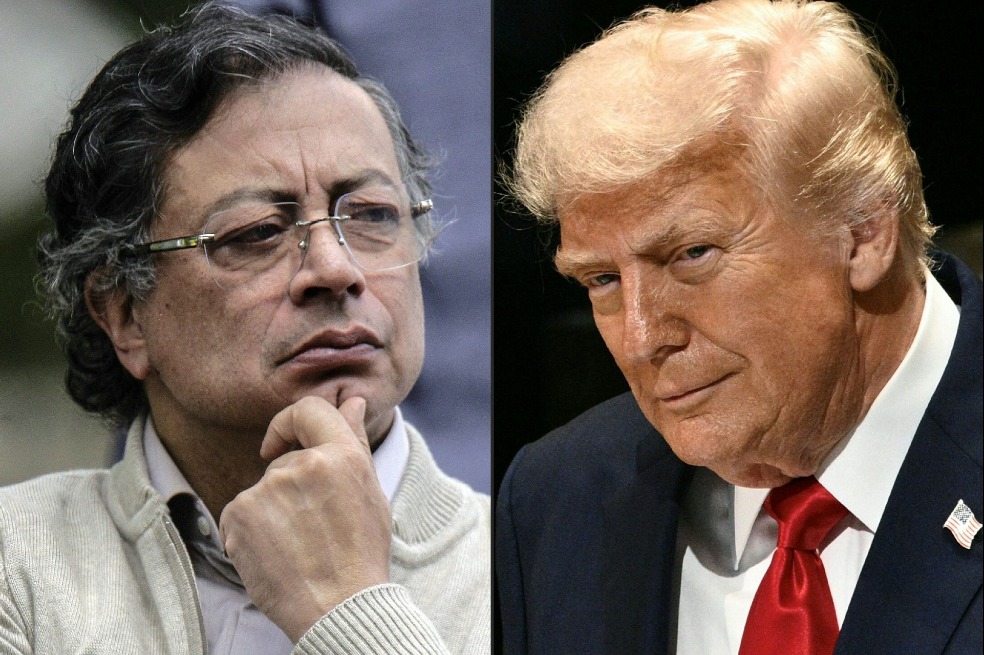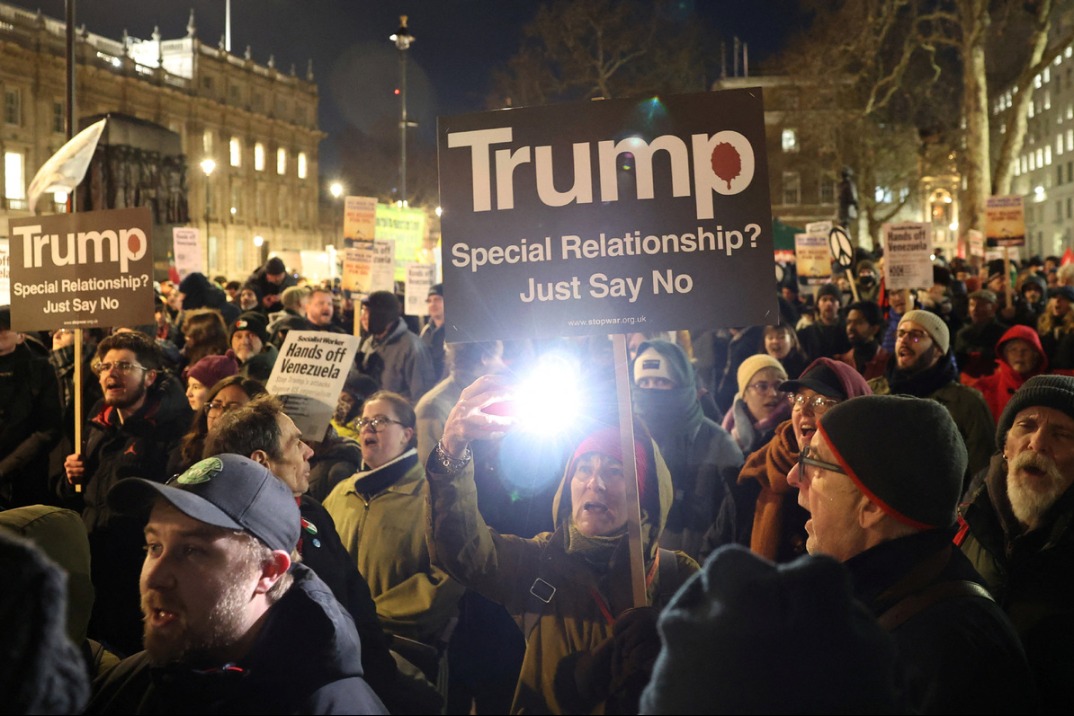US Special 301 Report puts China, dozens of countries on list

The US Trade Representative on Friday put China, Canada and dozens of other countries on the watch list of a report that highlights intellectual property issues with US trade partners.
The 2018 Special 301 Report on Intellectual Property Rights, an annual report mandated by the US Congress, identifies 36 countries on the so-called Priority Watch List or Watch List.
China, along with Algeria, Argentina, Canada, Chile, Colombia, India, Indonesia, Kuwait, Russia, Ukraine and Venezuela are the 12 countries on the priority list, which USTR says
"the IP issues in these countries will be the subject of intense bilateral engagement during the coming year".
It is the14th consecutive year that China is on the priority list. The report accuses China of coercive technology transfer, impediments to effective IP enforcement and infringing activity such as trade secret theft, online piracy and counterfeit manufacturing.
"The clear message to China is that it should address all the problems identified in the Special 301 report, and we will continue to consider all avenues available," a USTR official said in a background conference call on Friday morning.
The official also noted progress in China, including expansion of specialized IP courts and tribunals and preliminary concepts announced in terms of regulatory data protection, and early notification and resolution of pharmaceutical patent disputes.
The report has noted that a development of potential significance is the Chinese government reorganization approved by the National People's Congress on March 17 this year, where several IP-related government functions are put under a new State Administration of Market Supervision and Management.
Last August, the US launched a separate investigation into China's IP policies and practices. As a result of the probe, the US has threatened to slap tariffs on $150 billion worth of imports from China and impose restrictions on Chinese investment in the US, especially in the technology sector. China has responded by proposing tariffs on US products from soybeans to planes.
US Treasury Secretary Steven Mnuchin and US Trade Representative Bob Lighthizer will lead a delegation to China in the coming days for bilateral talks that many hope would prevent the tit-for-tat retaliations grow into an all-out trade war between the world's two largest economies.
In the Boao Forum for Asia in China's Hainan Island early this month, Chinese President Xi Jinping pledged that China will strengthen its IP protection, further open its market and lower tariffs, including a substantial reduction of tariffs on autos.
US President Donald Trump on Tuesday applauded Xi's recent speech on further opening up. He described the Mnuchin upcoming trip to China by saying, "We've got a very good chance of making a deal".
Writing on the Project Syndicate on Tuesday, Stephen Roach, former chairman and chief economist of Morgan Stanley Asia and now a senior fellow at Yale University Jackson Institute of Global Affairs, said the US has a weak case against China in its Section 301 report. He called the USTR report "wide of the mark in several key areas".
He said it was "a biased political document that has further inflamed anti-China sentiment in the US". "The case made by the USTR is an embarrassing symptom of a scapegoat mentality that has turned America into a nation of whiners," Roach wrote.
On the forced technology transfer in joint ventures in China, he argued that US and other multinational corporations willingly enter into these legally-negotiated arrangements for commercially sound reasons -- not only to establish a toehold in China's rapidly growing domestic markets, but also as a means to improve operating efficiency with a low-cost offshore Chinese platform.
Roach said portraying US companies as innocent victims of Chinese pressure is certainly at odds with his own experience as an active participant in Morgan Stanley's joint venture with the China Construction Bank to establish, China International Capital Corp in 1995.
He also criticized the portrayal of China's outward investment as a unique state-directed plan aimed at gobbling up newly emerging US companies and their proprietary technologies and describing Made in China 2025 strategy as a plot to dominate future industries in the world.
"The USTR is entirely correct in underscoring the role that innovation plays in shaping any country's future. But to claim that China alone relies on industrial policy as a means toward this end is the height of hypocrisy," Roach said, citing many examples of industrial policies in Japan, Germany and the US.
He listed NASA-related spinoffs, the internet, GPS, breakthroughs in semiconductors, nuclear power, imaging technology and pharmaceutical innovations as "important and highly visible manifestations of industrial policy the American way".
On the accusation of cyber-espionage, Roach pointed out that the cases cited in the Section 301 report were mostly before China and the US reached an agreement in Sept 2015 on cybersecurity, and such cases have declined dramatically since then.
Contact the writer at chenweihua@chinadailyusa.com

































